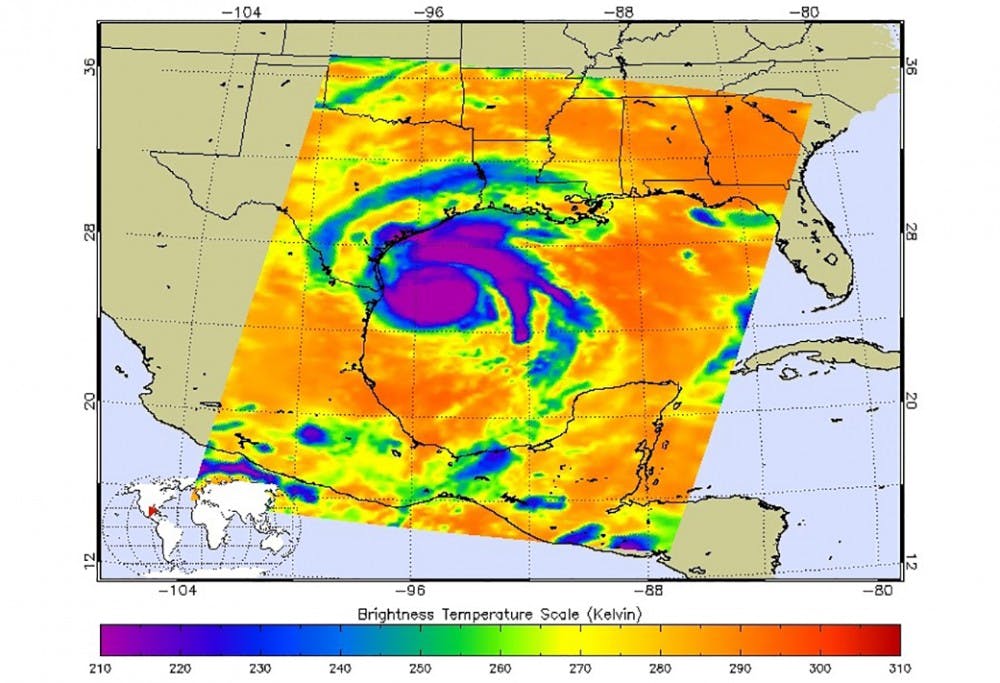The United States has been hit by Hurricane Irma just mere days after Hurricane Harvey devastated Texas. Combined, both disasters have already killed upwards of 100 people, and recovery costs may reach two times that of Katrina’s $160 billion in economic losses. Though Congress has taken short-term action to respond to these disasters, legislators must initiate reforms to better mitigate the impact of future disasters, rather than continue its haphazard pattern of providing funding only after such disasters occur.
Historically, disaster response agencies such as the Federal Emergency Management Agency, or FEMA, have received large boosts of “emergency supplemental funds” following the impact of a natural disaster — in 2005, over $50 billion was appropriated to FEMA’s Disaster Relief Fund due to the impacts of hurricanes Katrina, Wilma and Rita. Appropriating funds only after the occurrence of a disaster, however, has consequences in terms of responsiveness. Harvey’s impact on FEMA was immediate — Bloomberg reported that the agency was “expected to run out of money by Friday [Sept. 8] … FEMA’s Disaster Relief Fund, which pays for the agency’s disaster response and recovery activity, had just $1.01 billion on hand.” Although Congress averted such an event through a short-term funding boost, Politico noted that “the federal government’s catch-as-catch-can approach to disasters … have given short shrift to preventative measures and emergency-response training.” In the event that Congress is unable to pass such emergency funding measures, due to a national emergency or significant disagreements between parties, national agencies would be crippled in terms of their capability to respond to such emergencies.
The United States’ “short shrift” to preventative measures is presently most obvious in the National Oceanic and Atmospheric Administration’s lackluster performance at predicting Hurricane Irma’s path. Ars Technica reported that “the average error of the European model with respect to Irma has been about 175km in its position forecast … The average 120-hour error of the U.S. model is about 475km. A similar disparity in quality goes all the way down to 24-hour forecasts.” The NOAA’s Global Forecasting System’s complete inferiority to the European Centre for Medium-Range Weather Forecasts is in part due to a lack of funding for the NOAA. In 2007, the National Science Board recommended that the United States should spend $300 million in providing “urgently needed hurricane science and engineering research and education.” To date, the United States has only spent about 10 percent of that amount. As a result, the United States is getting what it pays for — an inferior product incapable of providing useful data to guide decisions on hurricane responses.
Congress’s pattern of only allocating funds upon the conclusion of a natural disaster is incredibly short-sighted. Climate change’s exacerbating effect on the strength of climate disasters will only make such storms a more deadly, pressing force to deal with as time continues. In order to deal with the rising costs of such storms, Congress must take action in boosting long-term funding for federal agencies to improve outreach, awareness and prediction services. In doing so, the United States can mitigate the impact of natural disasters, preserving human life and reducing economic damage. The executive branch’s ignorance — if not outright denial — of the costly effects of natural disasters presents an opportunity for Congress to formulate a plan to deal with ever-worsening natural disasters. Boosting long-term funding for federal agencies designed to deal with such scenarios — rather than providing funding on a case-by-case basis — would be a viable first step to demonstrate Congress’s seriousness in addressing such an issue.
William Wong is an Opinion columnist for The Cavalier Daily. He can be reached at opinion@cavalierdaily.com.







